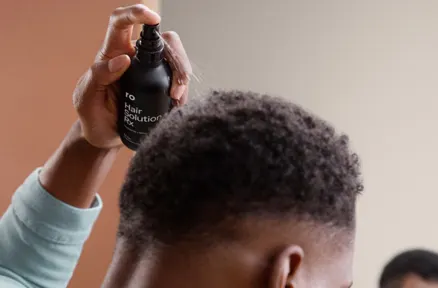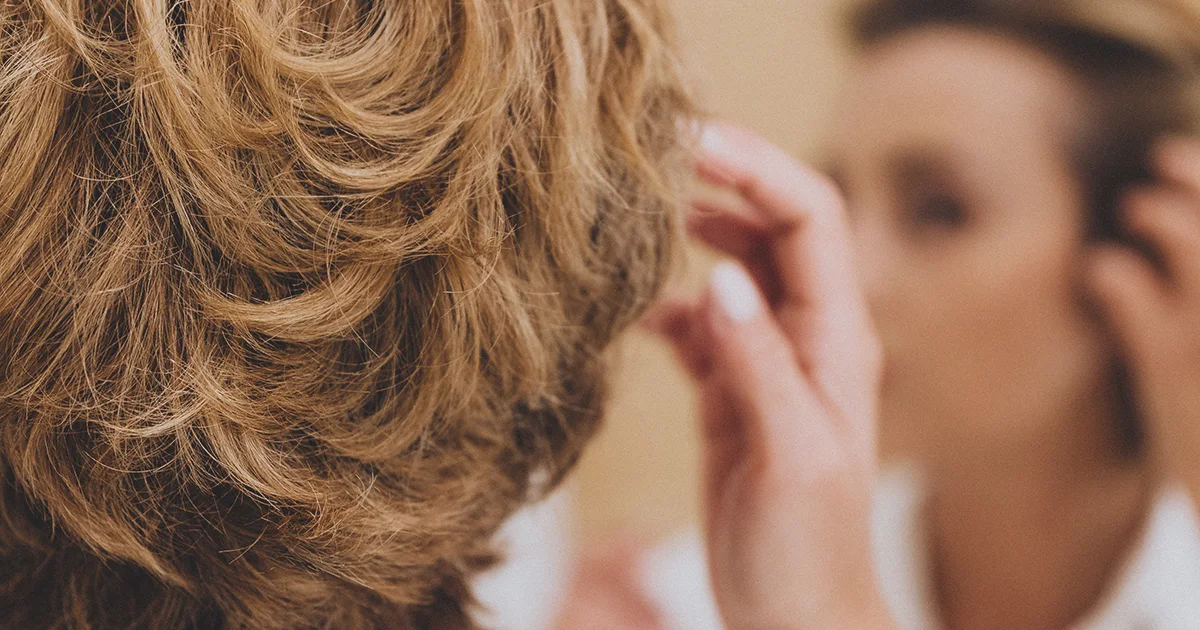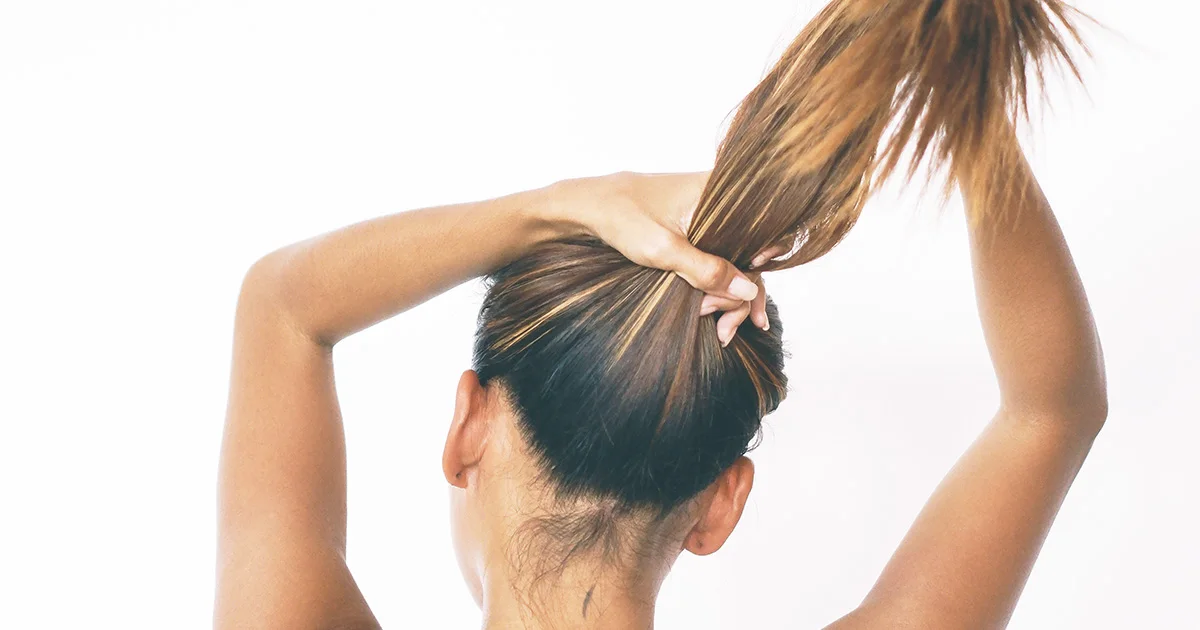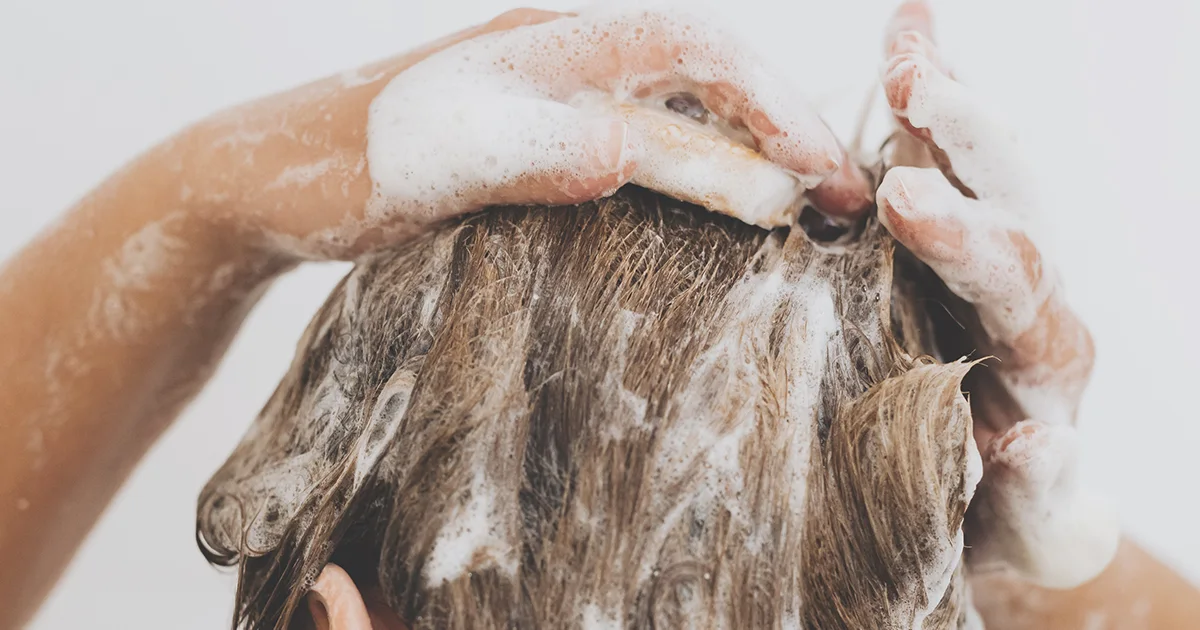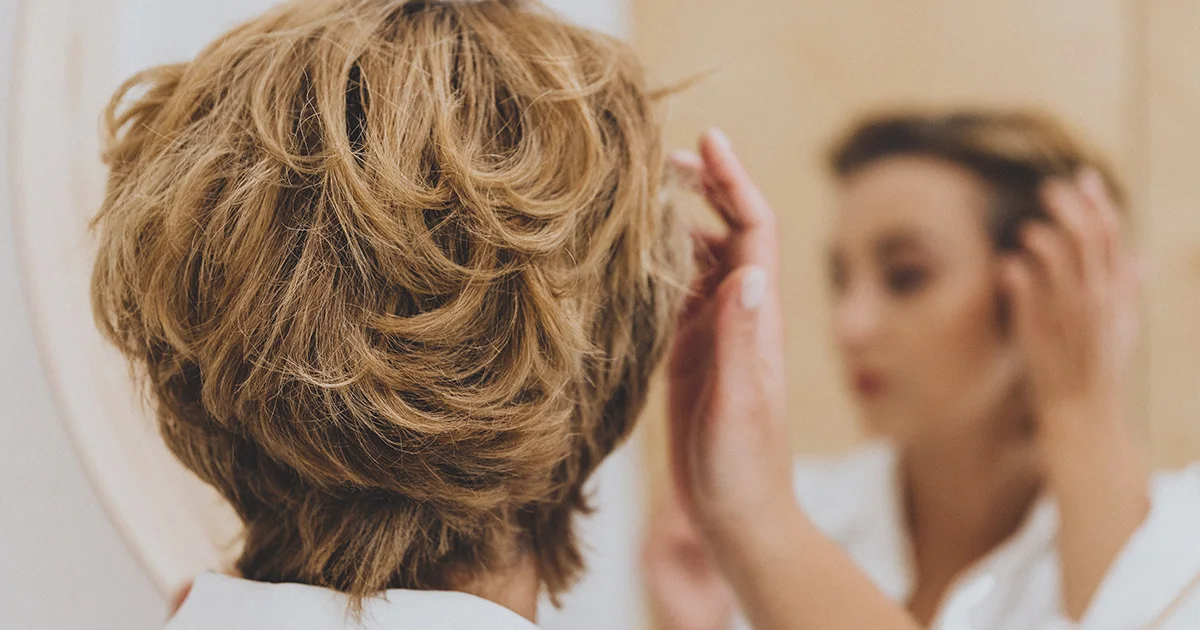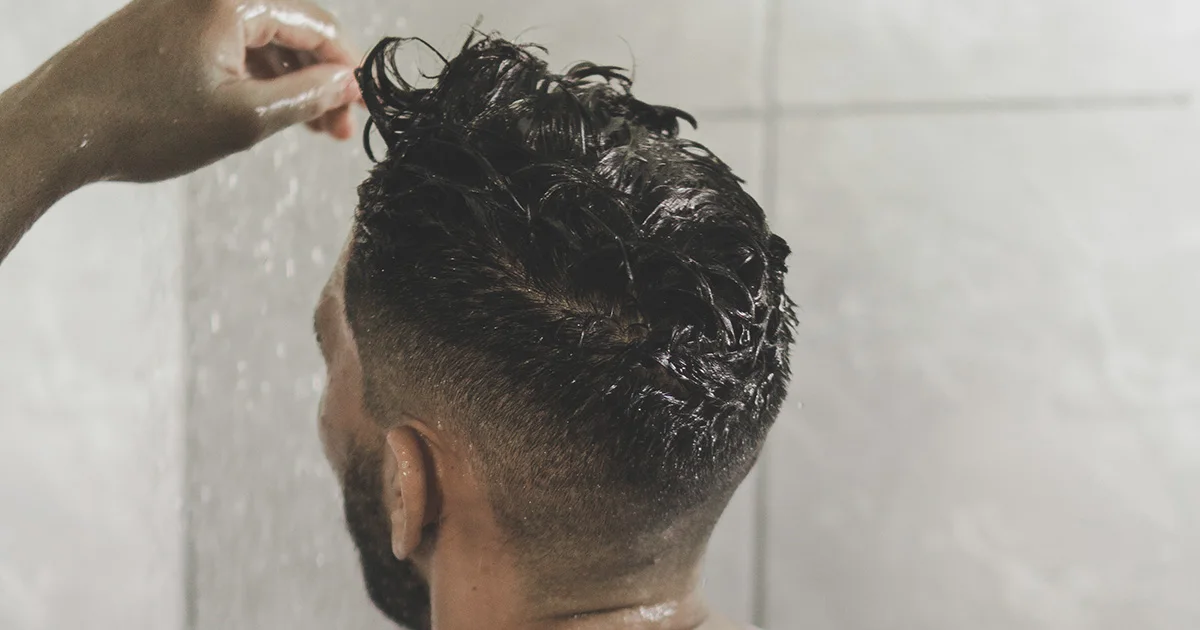Here's what we'll cover
Here's what we'll cover
Here's what we'll cover
Hair loss, also known as alopecia, affects a significant portion of the population. In fact, more than 56 million people in the United States live with some kind of hair loss.
Not all hair loss is the same, though. If your hair loss is most prevalent at your temples or you’ve developed hair loss at the crown, it’s most likely androgenic alopecia, a genetic condition commonly known as pattern baldness (Wolff, 2016).
Massive hair loss can also be triggered by intense stress or infection, a reversible condition called telogen effluvium (Malkud, 2015). In some cases, if hair loss occurs in small patches, it may be the result of an autoimmune condition called alopecia areata (Spano, 2015).
But there are other things that play a factor in how thick your locks are. Researchers have even discovered a potential link between vitamin D deficiency and the development of certain types of hair loss.
What does vitamin D have to do with hair loss?
Lack of vitamin D may not be the reason for all types of hair loss, but it may play an important role in the development of alopecia areata and pattern baldness.
Vitamin D works by binding to vitamin D receptors found in all kinds of cells in your body, such as immune cells, kidney cells, and hair follicles. One important function of vitamin D is to help regulate cell cycles, which is particularly important when it comes to hair growth. In patients with alopecia areata, for example, research seems to show that hair follicle cycling is disrupted due to low levels of vitamin D (Hosking, 2018; Lin, 2019).
In one study, researchers found that patients with alopecia areata were more likely to be vitamin D deficient (Gade, 2018).
Less research exists linking vitamin D to pattern hair loss, however, recent research found that lower vitamin D levels correlated with more severe cases of this type of hair loss (Sanke, 2020). Not just that—there’s even evidence that treatment with vitamin D may help restore hair growth. More on that below.
Do vitamin D supplements help with hair loss?
If you have a vitamin D deficiency and are experiencing hair loss, some studies suggest a simple solution: take vitamin D supplements (Lin, 2019; Gerkowicz, 2017). Unfortunately, data is scarce on if vitamin D supplements really work for hair loss, but here’s what we know so far.
One very small study evaluating just 22 people found that applying a vitamin D-derived cream was moderately effective for more than half of study participants with patchy hair loss (Narang, 2017). Another study had similar success, with researchers finding a vitamin D topical treatment to be effective for hair loss in nearly 70% of study participants. (Çerman, 2015).
How can I find out if I have a vitamin D deficiency?
If you suspect you may have a vitamin D deficiency, you may be right. But that doesn’t mean you should go grab supplements. Your first step should be a visit to your healthcare provider for a simple blood test to figure out if you need more vitamin D (Kennel, 2010).
If your healthcare provider finds that your levels are low, your best bet is to make sure you’re getting enough vitamin D through your diet. There are two forms of vitamin D: D2 and D3. We get vitamin D2 by eating certain plants and mushrooms. While you can get vitamin D3 from the sun, most of us don’t spend enough time outside to fulfill our vitamin D needs. Luckily, though, you can also get your vitamin D3 by consuming foods like fatty fish, eggs, and milk (Sahota, 2014).
Your healthcare provider may recommend that you add a supplement to your routine to ensure that you replenish your vitamin D stores. Not all supplements are created equal, though. Make sure to pick one from a reputable brand.
Types of vitamin D supplements
Vitamin D supplements exist in many forms. Consult with a medical professional before deciding if any of the following supplements are a good solution for you.
Topical creams: Hair loss can be treated using creams or lotions containing Vitamin D derivatives. One well-known one is called calcipotriol, which has been effective in some studies for treating patients with alopecia areata (El Taieb, 2019). Calcipotriol requires a prescription from a healthcare provider.
Oral tablets: Vitamin D supplements also come as oral tablets or capsules. You can find vitamin D2 and D3 supplements at your local drugstore. Keep in mind that taking daily supplements may help with an overall vitamin D deficiency, but there isn't enough data yet to show this treatment specifically helps with hair loss (Gerkowicz, 2017).
Diet: The best way to get vitamin D in most cases is from food. Foods that contain significant amounts of vitamin D include cod liver oil, trout, salmon, and white mushrooms (NIH, 2020).
You might be wondering about one we all associate vitamin D with: the sun. Natural sunlight produces two types of ultraviolet rays, UVA and UVB. UVB rays help your body make more Vitamin D. Most people worldwide get at least a portion of their vitamin D from sunlight, and where we live, how we live, and even how we dress affect how much sunlight we get every day (NIH, 2020).
Those of us working sedentary jobs—especially ones that require you to spend a lot of time indoors or under artificial light—might not get enough sun exposure as others. UVB rays can’t penetrate glass windows, and by the time we’ve wrapped up work for the day, the sun has already set.
Making a conscious effort to get more sun might be one solution. Researchers have suggested exposure to sunlight (without sunscreen) for five to 30 minutes at least twice a week helps produce sufficient vitamin D (NIH, 2020).
This also comes with a strong warning: UV rays are known to cause cancer. Some natural sun on our skin can be healthy, but it's best to avoid staying in the sun for too long to reduce the risk of skin cancer (NIH, 2020).
Recommended dosages of Vitamin D
According to the NIH, adults between the ages of 18-70 should have a daily intake of 15 mcg/600 IU of Vitamin D. For adults older than 70 years, 20 mcg/800 IU of Vitamin D is recommended. Many people get their Vitamin D from several sources, whether it's a combination of diet, sun, or supplements (NIH, 2020).
Alternative options for hair loss treatment
If Vitamin D isn’t the solution for you, don’t worry. There are plenty of options out there to help with your hair loss issue. Below, we name just a few.
Minoxidil: Using minoxidil as a topical cream has been effective in clinical trials for treating people with alopecia areata or androgenic alopecia (Wolff, 2016).
Finasteride: Finasteride is an oral medication for hair loss. Studies have found that 1 mg of finasteride per day can help prevent further hair loss, and thicken hair in patients with androgenic alopecia (Spano, 2015).
UVB therapy: UVB rays exist in natural sunlight and aid the body in producing enough vitamin D. Research has found UVB phototherapy to be effective in improving alopecia areata (Esen Salman, 2019).
Hair follicle transplantation: For those with more severe hair loss, such as advanced androgenic alopecia, surgical treatment is possible. While this method doesn't prevent additional hair loss, it helps restore hair growth (Wolff, 2016).
Along with vitamin D supplements, these alternatives are only part of a more extensive list of hair loss treatments. Hair loss is often a distressing experience, but know that you aren’t alone and there are many treatment options out there to explore.
DISCLAIMER
If you have any medical questions or concerns, please talk to your healthcare provider. The articles on Health Guide are underpinned by peer-reviewed research and information drawn from medical societies and governmental agencies. However, they are not a substitute for professional medical advice, diagnosis, or treatment.
References
Çerman, A. A., Solak, S. S., Altunay, İ., & Küçükünal, N. A. (2015). Topical Calcipotriol Therapy for Mild-to-Moderate Alopecia Areata: A Retrospective Study. Journal of Drugs in Dermatology: JDD, 14 (6), 616–620. Retrieved from https://pubmed.ncbi.nlm.nih.gov/26091388/
Esen Salman, K., Kıvanç Altunay, İ., & Salman, A. (2019). The efficacy and safety of targeted narrowband UVB therapy: a retrospective cohort study. Turkish Journal of Medical Sciences, 49 (2), 595–603. doi: 10.3906/sag-1810-110. Retrieved from https://pubmed.ncbi.nlm.nih.gov/30997975/
El Taieb, M. A., Hegazy, E. M., Ibrahim, H. M., Osman, A. B., & Abualhamd, M. (2019). Topical calcipotriol vs narrowband ultraviolet B in treatment of alopecia areata: a randomized-controlled trial. Archives of Dermatological Research, 311 (8), 629–636. doi: 10.1007/s00403-019-01943-8. Retrieved from https://pubmed.ncbi.nlm.nih.gov/31236672/
Farole, A. (2016). How many people lose their hair? Hair loss statistics. Retrieved February 05, 2021, from https://www.drfarole.com/blog/many-people-lose-hair-hair-loss-statistics/#:~:text=With%20approximately%20320%20million%20people,percentage%20of%20hair%20loss%20victims
Gerkowicz, A., Chyl-Surdacka, K., Krasowska, D., & Chodorowska, G. (2017). The Role of Vitamin D in Non-Scarring Alopecia. International Journal of Molecular Sciences, 18( 12), 2653. doi: 10.3390/ijms18122653. Retrieved from https://pubmed.ncbi.nlm.nih.gov/29215595/
Hosking, A. M., Juhasz, M., & Atanaskova Mesinkovska, N. (2019). Complementary and Alternative Treatments for Alopecia: A Comprehensive Review. Skin Appendage Disorders, 5 (2), 72–89. doi: 10.1159/000492035. Retrieved from https://www.ncbi.nlm.nih.gov/pmc/articles/PMC6388561/
Kennel, K. A., Drake, M. T., & Hurley, D. L. (2010). Vitamin D deficiency in adults: when to test and how to treat. Mayo Clinic Proceedings, 85 (8), 752–758. doi: 10.4065/mcp.2010.0138. Retrieved from https://www.mayoclinicproceedings.org/article/S0025-6196(11)60190-0/fulltext
Kim, D. H., Lee, J. W., Kim, I. S., Choi, S. Y., Lim, Y. Y., Kim, H. M., Kim, B. J., & Kim, M. N. (2012). Successful treatment of alopecia areata with topical calcipotriol. Annals of Dermatology, 24 (3), 341–344. doi: 10.5021/ad.2012.24.3.341. Retrieved from https://www.ncbi.nlm.nih.gov/pmc/articles/PMC3412244/
Lin, X., Meng, X., & Song, Z. (2019). Vitamin D and alopecia areata: possible roles in pathogenesis and potential implications for therapy. American Journal of Translational Research, 11 (9), 5285–5300. Retrieved from https://pubmed.ncbi.nlm.nih.gov/31632510/
Narang, T., Daroach, M., & Kumaran, M. S. (2017). Efficacy and safety of topical calcipotriol in management of alopecia areata: A pilot study. Dermatologic Therapy, 30 (3), 10.1111/dth.12464. doi: 10.1111/dth.12464. Retrieved from https://pubmed.ncbi.nlm.nih.gov/28133875/
Phillips, G. T., Slomiany, P. W., & Allison, R., II. (2017). Hair loss: Common causes and treatment. American Family Physician, 96 (6): 371-378. Retrieved from https://www.aafp.org/afp/2017/0915/p371.html
Sahota O. (2014). Understanding vitamin D deficiency. Age and Ageing, 43 (5), 589–591. doi: 10.1093/ageing/afu104. Retrieved from https://www.ncbi.nlm.nih.gov/pmc/articles/PMC4143492/
Sanke, S., Samudrala, S., Yadav, A., Chander, R. and Goyal, R. (2020), Study of serum vitamin D levels in men with premature androgenetic alopecia. International Journal of Dermatology, 59: 1113-1116. doi: 10.1111/ijd.14982. Retrieved from https://onlinelibrary.wiley.com/doi/abs/10.1111/ijd.14982
Spano, F., & Donovan, J. C. (2015). Alopecia areata: Part 2: treatment. Canadian Family Physician Medecin de Famille Canadien, 61 (9), 757–761. Retrieved from https://www.ncbi.nlm.nih.gov/pmc/articles/PMC4569105/
National Institutes of Health, Office of Dietary Supplements (NIH). (2020, October 9). Vitamin D. Retrieved February 05, 2021, from https://ods.od.nih.gov/factsheets/VitaminD-HealthProfessional/
Wolff, H., Fischer, T. W., & Blume-Peytavi, U. (2016). The Diagnosis and Treatment of Hair and Scalp Diseases. Deutsches Arzteblatt International, 113 (21), 377–386. doi: 10.3238/arztebl.2016.0377. Retrieved from https://www.ncbi.nlm.nih.gov/pmc/articles/PMC4908932/
